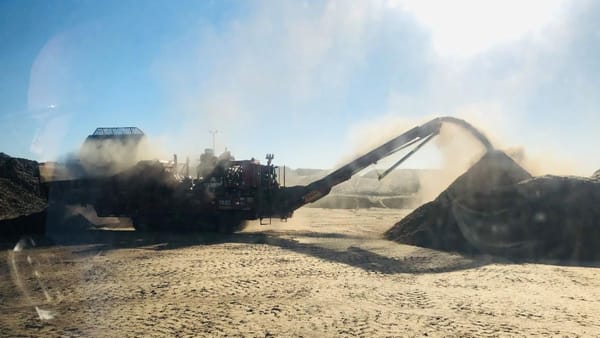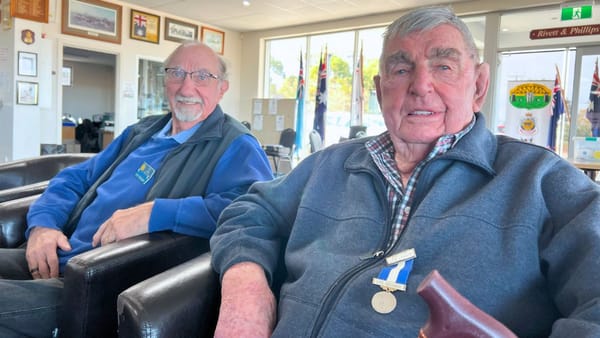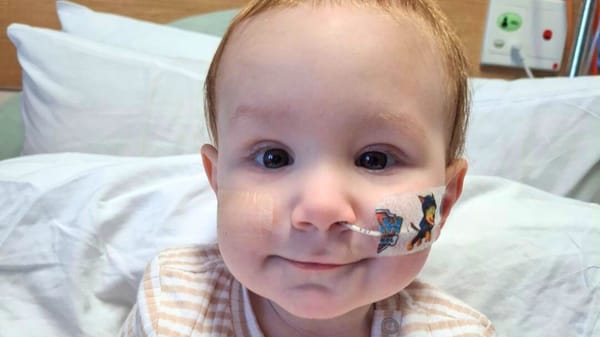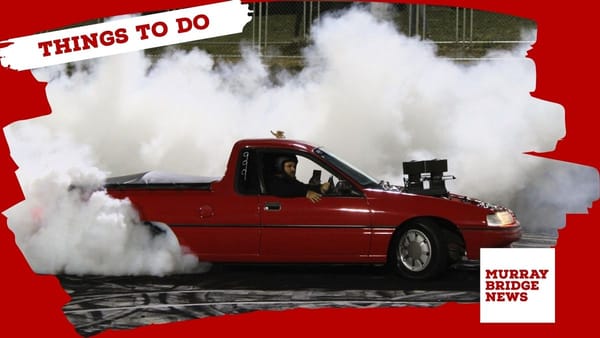Yellow Wiggle gives heartfelt talk in Murray Bridge
Former children’s entertainer Greg Page has pushed for more defibrillators in the community in a presentation to Murray Bridge Rotary Club.
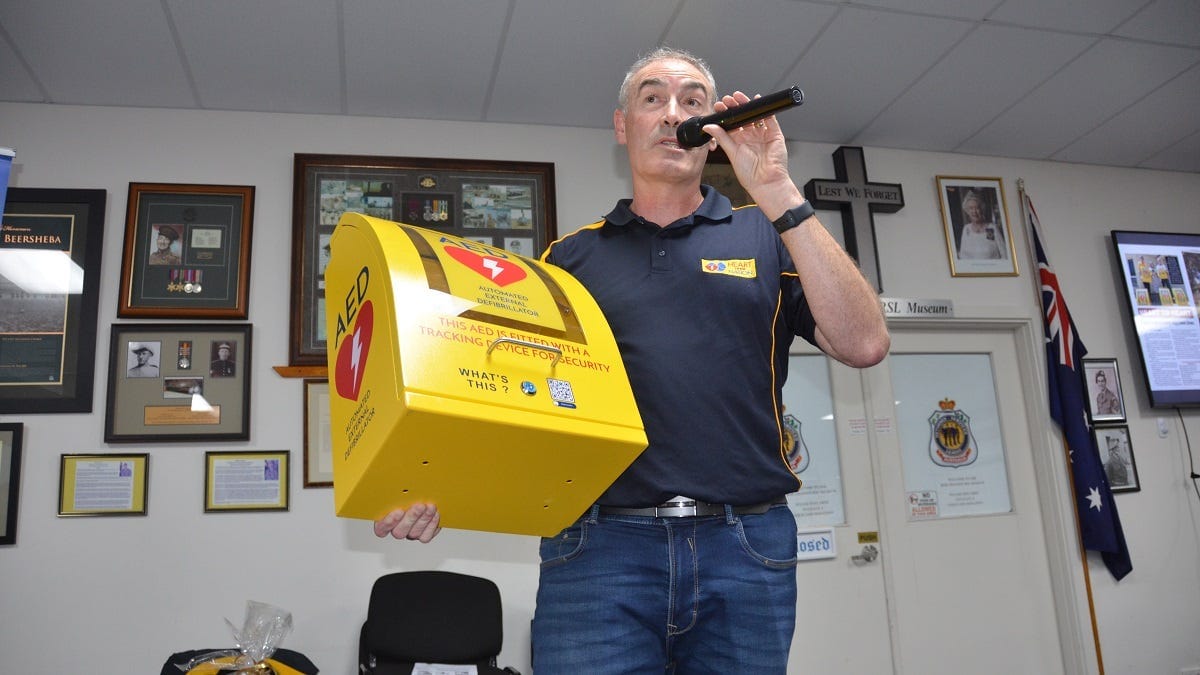
This post about public health is free to read. Your support helps Murray Bridge News tell important local stories – subscribe today.

Former children’s entertainer and original Yellow Wiggle Greg Page has pushed for more defibrillators in the community in a presentation to Murray Bridge Rotary Club.
Page is the founder and CEO of charity Heart of the Nation, which amongst other things, promotes awareness about the need for automated external defibrillators.
AEDs are medical devices that can deliver an electric shock to someone who has had a sudden cardiac arrest to help the person’s heart re-establish a proper rhythm.
In 2020, Page had a cardiac arrest on stage while performing with the Wiggles.
He had only a 10 per cent chance of survival, but lived largely because an AED was available.
Since an AED saved Page’s life, he has been on a personal quest to make more AEDs available in Australia to people who have suffered cardiac arrest.
“Rapid access to an AED is the key to survival,” he said.
“If you can get an AED on someone within three to five minutes, an AED will increase survival rates from 67–72%.”
In the Wiggles, Page was known as the yellow Wiggle because he wore a yellow skivvy.
At his Murray Bridge talk, he wore blue jeans and T-shirt, but he did hold a bright yellow AED cabinet.
“You don’t want to miss it because AEDs generally are in a white cabinet that tends to look like a first aid cabinet, so with the yellow, you know it’s not first aid,” he said.
Page said he used to walk past an AED cabinet at a Bunnings Warehouse many times without realising what it was.
“It was only after my cardiac arrest, I went back to my local Bunnings and saw it there on the wall, but I realised why I had never seen it – because it was in a white cabinet with a white and green sticker, and I thought it was a first aid cabinet.”
Heart of the Nation has a national register to inform people where the nearest AED is located.
It also offers support to organisations or individuals who might like to host an AED, and can provide community packages – including an AED, a cabinet, training, and a listing on the register – for $2990.
The Rotary Club of Strathalbyn has already embraced the concept, installing 10 AEDs in the surrounding area.
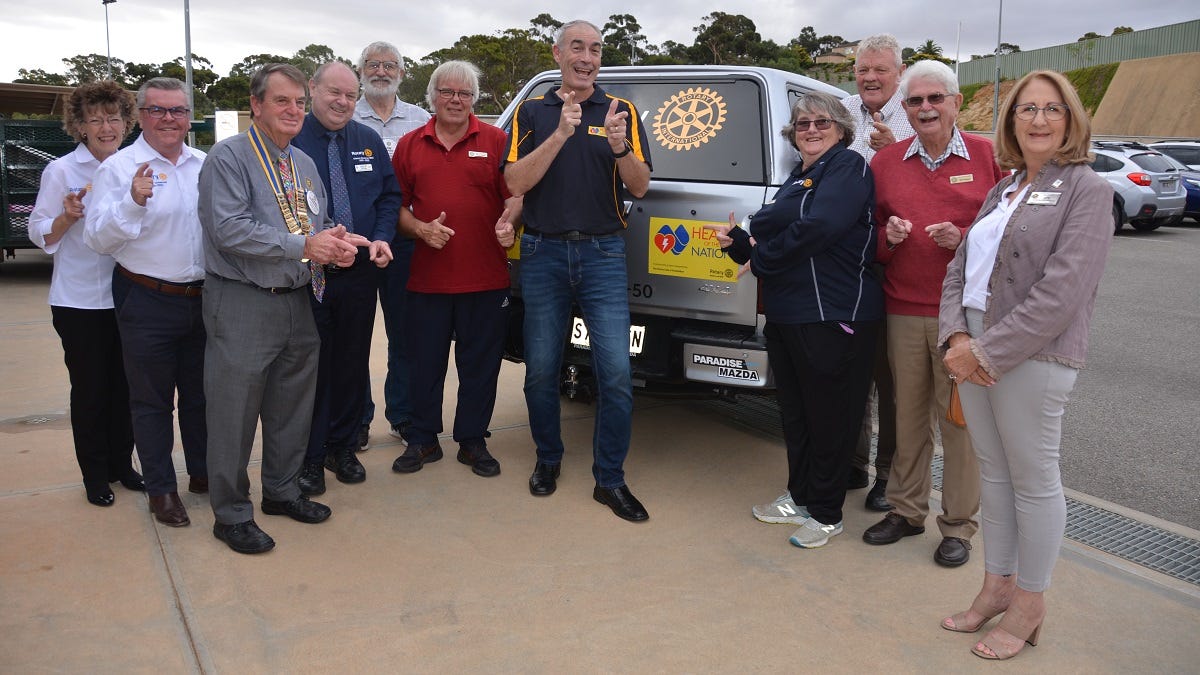
Page also stressed that he did not get a cent from Heart of the Nation and was a volunteer himself.
“I don’t get kickbacks from anyone – I’m here because I want to be able to save lives if I can,” he said.
“We can’t save every life, but we can save a lot more lives with people of action who are prepared to do the chain of survival – call, push and shock.”
- More information: www.heartofthenation.com.au. In an emergency, call 000.
How to save a life: Call, push and shock
When someone’s not responding, or not breathing normally or at all, it’s time to:
- Call: Call 000. Emergency Services can talk you through the steps to perform CPR, and take over from you when they get there. They can also guide you to the nearest AED.
- Push: Perform CPR. CPR is a skill that everybody should have. You don’t have to be qualified to use it. Any attempt at resuscitation is better than none.
- Shock: Use an AED. AEDs are deliberately designed to be easy to use, even with no training; and completely safe for both the user/responder and the patient. They are a small, portable machine designed to restore a normal, functioning heartbeat in people who have experienced a cardiac arrest.
Your support helps Murray Bridge News tell important local stories – subscribe today.


